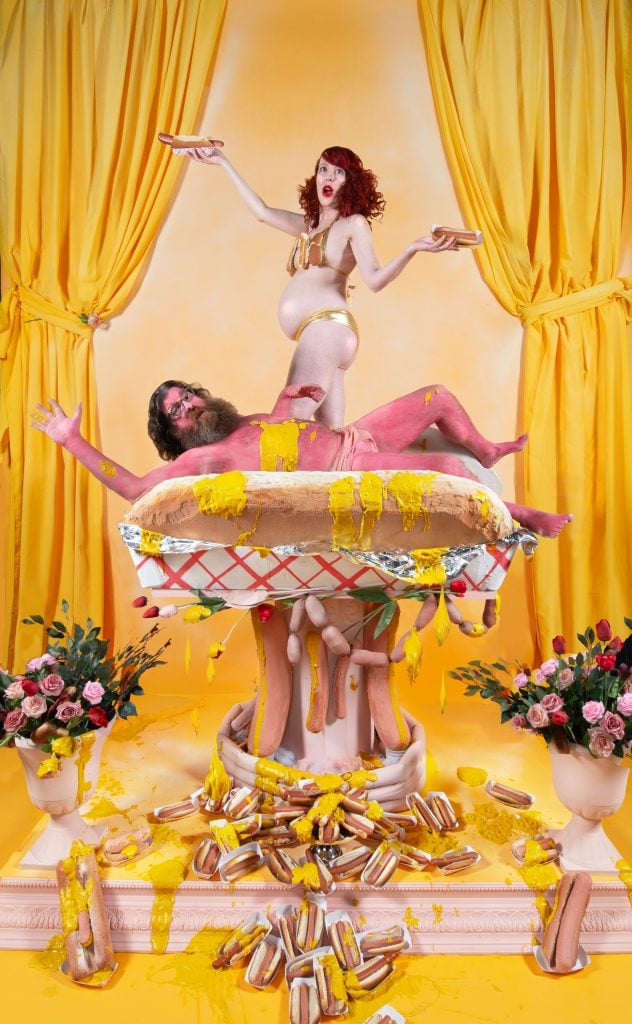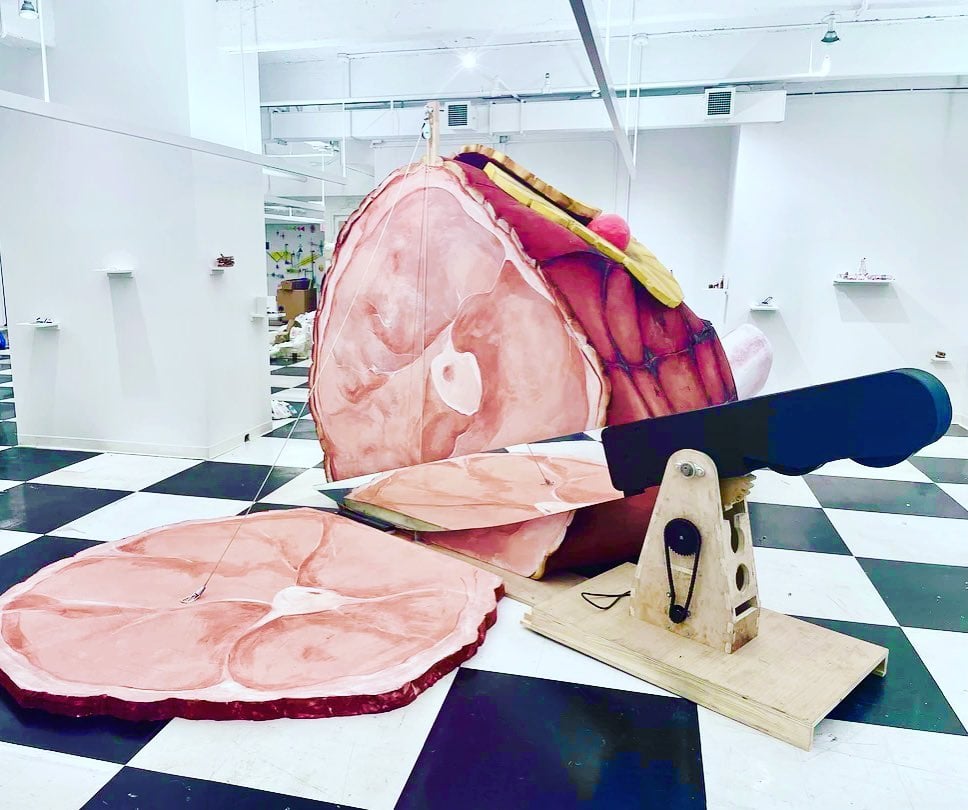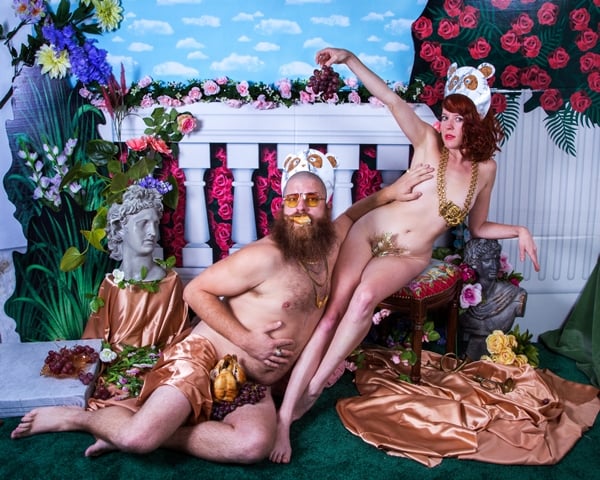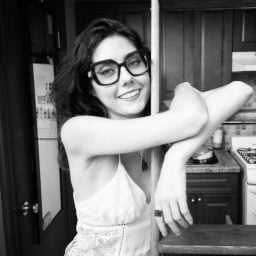Art World
The World’s Largest Hot Dog Sculpture Will Get Served Up in Times Square
The work by Jen Catron and Paul Outlaw will shower confetti on passers-by.

Brooklyn-based art duo Jen Catron and Paul Outlaw will serve the world’s largest hot dog in Times Square on April 30, when their 65-foot sculpture, Hot Dog in the City, debuts. The work will remain on view through June, elaborating on the couple’s previous installations like a 3,000 gallon bowl of cereal at Miami Art Week and a huge ham at SPRING/BREAK. Times Square Arts commissioned the work with city and state funds.
“Jen and Paul are such a perfect match for Times Square,” Times Square Arts director Jean Cooney told me. “They’re creating a funhouse mirror of sorts, reflecting a distorted image of ourselves and our culture that emphasizes both the grotesque and absurd—and what better space for them to hold up that mirror.”

“Jen Catron and Paul Outlaw: Slicing Ham (2020/1792)” curated by Magda Sawon at Spring/Break Art Show. Photo courtesy of Spring/Break Art Show.
The wiener’s still being fabricated, but it’ll feature a smooth bun and supple street meat with mustard. Once a day, “at high noon” as the pun-laden press release reads, hydraulics will launch the hot dog high in the air so it can spill confetti on crowds below, honoring the American taste for excess and ostentatious spectacles such as patriotic parades, gender reveal parties, and New Years ball drops. Don’t let the show distract you, though. Catron and Outlaw consider the hot dog “a Trojan Horse of individual narratives and sordid histories.”
“There were so many ideas we had in the works for Times Square, from a massive cake to hot air balloon rides,” Catron and Outlaw told me over email. “As we considered the venue of Times Square and how it relates to our practice of evaluating, digesting, and regurgitating cultural and societal oddities and travesties, we recognized how many narratives and histories are packed into this humble handheld food and its representation of the American Dream.”
The edible talisman anchors sports, holidays, and international diplomacy. Its dubious makeup, origin story, and present-day salesforce all echo the American melting pot. Adherents to religions that render the hot dog off-limits have engineered workarounds to join the pastime too.

Rachel Stern, Paul Outlaw and Jennifer Catron (2014). Photo courtesy of the artists.
Hot Dog in the City will activate the foodstuff’s multifaceted symbolism with extensive programming like a drag wrestling match, a Major League Eating competition, and a canine pageant. Fans can vote online for their favorite hot dog condiment, and the results will center a debate during the work’s wider talk series about the politics of meat. Cooney expects “opposing views, healthy debate, and extra doses of irreverent humor.”
The sight of a Nathan’s or Sabret’s hot dog truck is nearly as foundational to New York’s visual identity as the Empire State Building itself, but the vendors that scent the city’s sidewalks face perennial perils. Mayors often posture with new vendor restrictions, and a “little friends group” of socialites even campaigned against their carts. Catron and Outlaw have firsthand experience in the matter: years ago they launched a viral crawdad boil food truck that appeared on Chopped. As such, “Hot Dog in the City” will also host the Street Vendor Project, a membership-based organization that champion street vendor rights.
“When making a piece that will be experienced at the public level, we believe artworks need to engage the maximum number of viewers by allowing multiple entry points,” the couple explained. “Humor has a rich history of making political and social messages more palatable.”





